
IFSAC (International Fire Service Accreditation Congress)
The International Fire Service Accreditation Congress (IFSAC) is a not-for-profit, peer-driven, self-governing system of both fire service certifying entities and higher education fire-related degree programs. IFSAC’s mission is to plan and administer a high-quality, uniformly delivered accreditation system with an international scope.
IFSAC was founded in 1990 to establish a new national accreditation system for fire service certification programs. In 1992, the development of an accreditation system for fire-related degree programs began.
The member entities of IFSAC are represented in a congress that deals with the general business of IFSAC and is overseen by an elected Council of Governors. The membership is then separated into two assemblies which specialize in the issues unique to degree-granting institutions and certifying entities. Each assembly has a board of governors, elected from the membership, which acts upon all accreditation applications; ensures accreditation is performed on a valid, credible, non-discriminatory, and timely basis; suggests guidelines and policies; and clarifies adopted policies. IFSAC’s administrative office handles the daily operations of the organization and is an outreach department within the College of Engineering, Architecture and Technology at Oklahoma State University.
The IFSAC Certificate Assembly provides accreditation to entities that certify the competency of and issue certificates to individuals who pass examinations based on National Fire Protection Association (NFPA) fire service professional qualifications and other standards approved by the Assembly. The accreditation is made at the state, provincial, federal government, or territorial level for fire fighter certification programs.
The IFSAC Degree Assembly accredits fire science or related academic programs at colleges and universities. Accreditation includes both two-year associate degrees and four-year bachelor’s degrees. An IFSAC accredited program indicates that course offerings, institutional support, and qualified faculty are working together in completing their educational mission.
In both assemblies, accreditation is granted only after an integral self-study is conducted by the entity or institution seeking accreditation, followed by an on-site review by a panel consisting of peer representatives from other member entities or institutions.
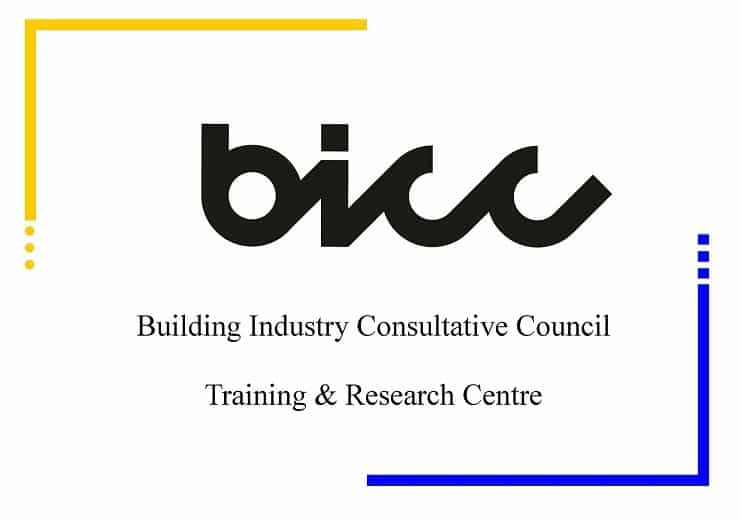
BICC (Building Industry Consultative Council)
The Building Industry Consultative Council is an advisory council made up by all stakeholders involved within the construction sector. BICC’s main aim is to advise the government on construction issues and also to assist the government in implementing the EU legislation and directives to ensure that Malta satisfies the commitments towards the 2020 energy targets.
BICC’s mission is to monitor the building industry and to advise policy makers on ways to enhance it as a strong social and economic contributor to improve sustainable development.

Alberta Group
The Alberta Group is a global provider of total solutions, backed by over 35 years of trading. Dedicated to the improvement of the quality of life and mitigation of risk, the Group’s focus is on offering protection of people, property, assets and the environment.
They have strong affiliations with leading quality brands and unrivalled networks, the Group enjoys a solid reputation based on excellence of performance and quality.
They are also renown for their innovation, being growth-driven and a trendsetter in high-tech engineering and design, Alberta Group frequently creates partnerships to combine industry-specific operational expertise and has grown successful businesses in various countries and sectors, including, the oil, gas, construction, civil protection, hospitality, manufacturing and maritime industries.
Their core business areas involve providing integrated solutions relating to fire, safety, security, marine, environment and training. The Group operates a number of subsidiaries and has interests in associated businesses.
• PTMatic
• International Safety Training College
• Hub
• MiMalta
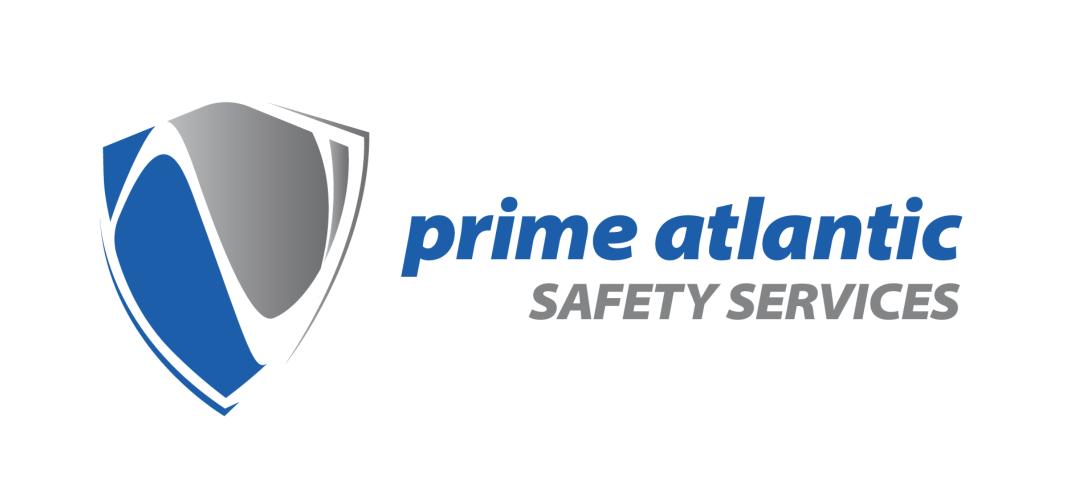
Prime Atlantic
Prime Atlantic have the capability to provide flexible training solutions to meet the demands of various sectors. Their training is conducted to OPITO standards for the offshore and marine sectors. They also cater to their customers using state of the art equipment and technologies. Some of the services they provide include:
- Risk, Security, and Marine Solutions
- EPC Projects, Training, and Global Maintenance Services
- Specialty Chemicals and Technical Services for the Oil Production and Drilling Industries
- Safety, Survival, and Emergency Response Training
- E+H and FOSS Instrumentation and Process Automation Solutions
- Personnel Logistics, Data Management, and HSE Services.
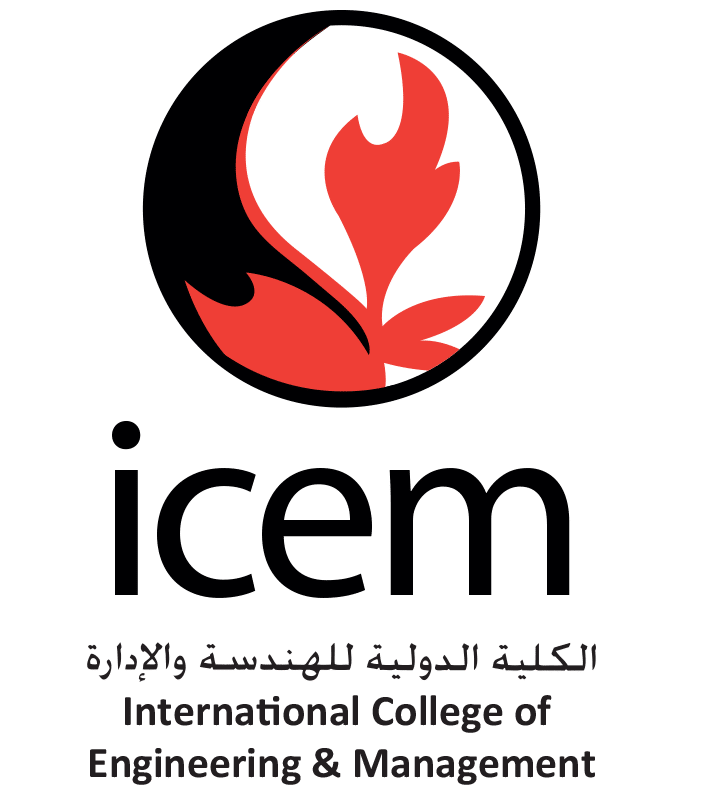
ICEM (International College of Engineering and Management)
The International College of Engineering and Management (ICEM) is at the forefront of educational excellence in the Sultanate of Oman. This renowned Higher Education College offers students an unrivalled selection of practical courses designed and led by experts who weave together a unique combination of educational excellence, outstanding practical experience and genuine community spirit.
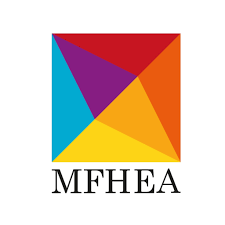
MFHEA (Malta Further and Higher Education Authority)
The Malta Further and Higher Education Authority (MFHEA) is an independent, transparent, and international authority who work to ensure the highest education standards and foster a competent community of empowered individuals, with the right skills to follow their dreams and make the future happen
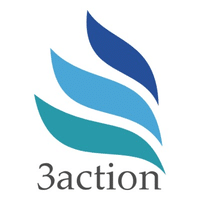
3action
3action provides specialist training and professional consultancy services to fire and emergency response teams worldwide in Incident Response. The Company supports clients to achieve the highest level of emergency response capability, including that of Local Authority Fire & Rescue services either in the country or at our state of the art simulator at ISTC Malta. ISTC delivers a wide range of certified training in conjunction with 3action based on the ‘skills for justice’ UK standards and operational procedures.
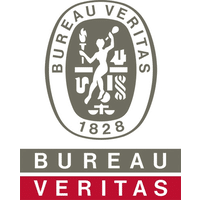
Bureau Veritas
The basis for all our training is quality assurance, based upon the ISO standards approved through Bureau Veritas, a global certification leader in the Quality, Health and Safety, Environment and Social Responsibility fields.
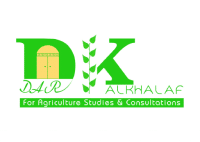
Dar Alkhalaf
Dar Alkhalaf for Agricultural Studies & Consultations is a major experienced Company in Kuwait that specialise in providing unique technical expertise in various fields such as agriculture, investments, financial and human development. The institute assists Companies by providing them with plenary and specialised training, thereby raising the bar of efficiency and productivity. In conjunction with Dar Alkhalaf, ISTC was entrusted to deliver several High- Level Incident Command Training courses to over 60 senior Fire Officers from the Kuwait Fire Service Directorate.

The IFE (Institution of Fire Engineers)
The IFE is a registered charity working for societal benefit. Founded in 1918, the IFE assesses knowledge of fire and professional experience, awarding internationally recognised membership grades and fire-related qualifications. Through its Engineering Council licence as a Professional Engineering Institution, the IFE registers suitably qualified IFE members as Chartered Engineers (CEng), Incorporated Engineers (IEng) and Engineering Technicians (Eng Tech). Learning opportunities are worldwide within the IFE fire community and the IFE delivers over 7,30 fire-related exams each year which are required by many Fire and Rescue Services for promotion both within the UK and internationally.

The Institution of Occupational Safety and Health (IOSH)
Based in the U.K, The Institution of Occupational Safety and Health (IOSH) is the world’s biggest organisation for health and safety professionals. Their goal is to set standards and support, develop and connect members with resources, guidance, events, and training. ISTC is proud to be a certified IOSH member and is approved to deliver several IOSH training courses either on-site at ISTC or at your own premises.
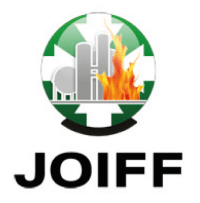
JOIFF (International Organisation for Industrial Emergency Services Management)
JOIFF is a not-for-profit organisation dedicated to developing the knowledge, skills, understanding and competence of Emergency Services Management, primarily in High Hazard Industry, by working to improve standards of safety and of the working environment in those sectors in which its members operate. JOIFF’s prime activity is Shared Learning to drive inherent safety, continuous risk reduction and safe management of residual risk in Industry.

National Examination Board in Occupational Safety and Health (NEBOSH)
NEBOSH (National Examination Board in Occupational Safety and Health) is an independent UK-based awarding body delivering globally recognised vocational qualifications in Health, Safety & Environmental Practice and Management. ISTC is accredited by NEBOSH to deliver the International General Certificate In Occupational Health and Safety.
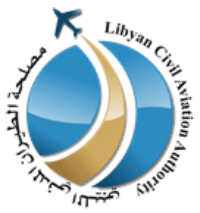
The Libyan Civil Aviation Authority
The Libyan Civil Aviation Authority confirms that ISTC holds the approval to deliver the basic Aviation Rescue & Fire Fighting courses specifically designed to satisfy the development needs of Emergency Response Personnel.
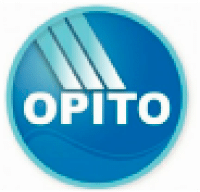
OPITO
OPITO is the global oil and gas industry’s focal point for skills-learning and workforce development. ISTC is accredited by OPITO for the delivery of the following courses: BOSIET (Basic Offshore Safety Induction & Emergency Training), FOET (Further Offshore Emergency Training), and HUET (Helicopter Underwater Evacuation Training).
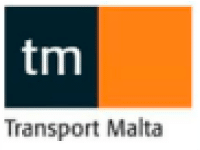
Transport Malta
Transport Malta is the flag authority for Malta and accredits ISTC to deliver STCW 95 courses, based on the international certification standard for seafarers under the International Maritime Organisation (IMO).

IFSAC (International Fire Service Accreditation Congress)
The International Fire Service Accreditation Congress (IFSAC) is a not-for-profit, peer-driven, self-governing system of both fire service certifying entities and higher education fire-related degree programs. IFSAC’s mission is to plan and administer a high-quality, uniformly delivered accreditation system with an international scope.
IFSAC was founded in 1990 to establish a new national accreditation system for fire service certification programs. In 1992, the development of an accreditation system for fire-related degree programs began.
The member entities of IFSAC are represented in a congress that deals with the general business of IFSAC and is overseen by an elected Council of Governors. The membership is then separated into two assemblies which specialize in the issues unique to degree-granting institutions and certifying entities. Each assembly has a board of governors, elected from the membership, which acts upon all accreditation applications; ensures accreditation is performed on a valid, credible, non-discriminatory, and timely basis; suggests guidelines and policies; and clarifies adopted policies. IFSAC’s administrative office handles the daily operations of the organization and is an outreach department within the College of Engineering, Architecture and Technology at Oklahoma State University.
The IFSAC Certificate Assembly provides accreditation to entities that certify the competency of and issue certificates to individuals who pass examinations based on National Fire Protection Association (NFPA) fire service professional qualifications and other standards approved by the Assembly. The accreditation is made at the state, provincial, federal government, or territorial level for fire fighter certification programs.
The IFSAC Degree Assembly accredits fire science or related academic programs at colleges and universities. Accreditation includes both two-year associate degrees and four-year bachelor’s degrees. An IFSAC accredited program indicates that course offerings, institutional support, and qualified faculty are working together in completing their educational mission.
In both assemblies, accreditation is granted only after an integral self-study is conducted by the entity or institution seeking accreditation, followed by an on-site review by a panel consisting of peer representatives from other member entities or institutions.

BICC (Building Industry Consultative Council)
The Building Industry Consultative Council is an advisory council made up by all stakeholders involved within the construction sector. BICC’s main aim is to advise the government on construction issues and also to assist the government in implementing the EU legislation and directives to ensure that Malta satisfies the commitments towards the 2020 energy targets.
BICC’s mission is to monitor the building industry and to advise policy makers on ways to enhance it as a strong social and economic contributor to improve sustainable development.

Alberta Group
The Alberta Group is a global provider of total solutions, backed by over 35 years of trading. Dedicated to the improvement of the quality of life and mitigation of risk, the Group’s focus is on offering protection of people, property, assets and the environment.
They have strong affiliations with leading quality brands and unrivalled networks, the Group enjoys a solid reputation based on excellence of performance and quality.
They are also renown for their innovation, being growth-driven and a trendsetter in high-tech engineering and design, Alberta Group frequently creates partnerships to combine industry-specific operational expertise and has grown successful businesses in various countries and sectors, including, the oil, gas, construction, civil protection, hospitality, manufacturing and maritime industries.
Their core business areas involve providing integrated solutions relating to fire, safety, security, marine, environment and training. The Group operates a number of subsidiaries and has interests in associated businesses.
• PTMatic
• International Safety Training College
• Hub
• MiMalta

Prime Atlantic
Prime Atlantic have the capability to provide flexible training solutions to meet the demands of various sectors. Their training is conducted to OPITO standards for the offshore and marine sectors. They also cater to their customers using state of the art equipment and technologies. Some of the services they provide include:
- Risk, Security, and Marine Solutions
- EPC Projects, Training, and Global Maintenance Services
- Specialty Chemicals and Technical Services for the Oil Production and Drilling Industries
- Safety, Survival, and Emergency Response Training
- E+H and FOSS Instrumentation and Process Automation Solutions
- Personnel Logistics, Data Management, and HSE Services.

ICEM (International College of Engineering and Management)
The International College of Engineering and Management (ICEM) is at the forefront of educational excellence in the Sultanate of Oman. This renowned Higher Education College offers students an unrivalled selection of practical courses designed and led by experts who weave together a unique combination of educational excellence, outstanding practical experience and genuine community spirit.

MFHEA (Malta Further and Higher Education Authority)
The Malta Further and Higher Education Authority (MFHEA) is an independent, transparent, and international authority who work to ensure the highest education standards and foster a competent community of empowered individuals, with the right skills to follow their dreams and make the future happen

3action
3action provides specialist training and professional consultancy services to fire and emergency response teams worldwide in Incident Response. The Company supports clients to achieve the highest level of emergency response capability, including that of Local Authority Fire & Rescue services either in the country or at our state of the art simulator at ISTC Malta. ISTC delivers a wide range of certified training in conjunction with 3action based on the ‘skills for justice’ UK standards and operational procedures.

Bureau Veritas
The basis for all our training is quality assurance, based upon the ISO standards approved through Bureau Veritas, a global certification leader in the Quality, Health and Safety, Environment and Social Responsibility fields.

Dar Alkhalaf
Dar Alkhalaf for Agricultural Studies & Consultations is a major experienced Company in Kuwait that specialise in providing unique technical expertise in various fields such as agriculture, investments, financial and human development. The institute assists Companies by providing them with plenary and specialised training, thereby raising the bar of efficiency and productivity. In conjunction with Dar Alkhalaf, ISTC was entrusted to deliver several High- Level Incident Command Training courses to over 60 senior Fire Officers from the Kuwait Fire Service Directorate.

The IFE (Institution of Fire Engineers)
The IFE is a registered charity working for societal benefit. Founded in 1918, the IFE assesses knowledge of fire and professional experience, awarding internationally recognised membership grades and fire-related qualifications. Through its Engineering Council licence as a Professional Engineering Institution, the IFE registers suitably qualified IFE members as Chartered Engineers (CEng), Incorporated Engineers (IEng) and Engineering Technicians (Eng Tech). Learning opportunities are worldwide within the IFE fire community and the IFE delivers over 7,30 fire-related exams each year which are required by many Fire and Rescue Services for promotion both within the UK and internationally.

The Institution of Occupational Safety and Health (IOSH)
Based in the U.K, The Institution of Occupational Safety and Health (IOSH) is the world’s biggest organisation for health and safety professionals. Their goal is to set standards and support, develop and connect members with resources, guidance, events, and training. ISTC is proud to be a certified IOSH member and is approved to deliver several IOSH training courses either on-site at ISTC or at your own premises.

JOIFF (International Organisation for Industrial Emergency Services Management)
JOIFF is a not-for-profit organisation dedicated to developing the knowledge, skills, understanding and competence of Emergency Services Management, primarily in High Hazard Industry, by working to improve standards of safety and of the working environment in those sectors in which its members operate. JOIFF’s prime activity is Shared Learning to drive inherent safety, continuous risk reduction and safe management of residual risk in Industry.

National Examination Board in Occupational Safety and Health (NEBOSH)
NEBOSH (National Examination Board in Occupational Safety and Health) is an independent UK-based awarding body delivering globally recognised vocational qualifications in Health, Safety & Environmental Practice and Management. ISTC is accredited by NEBOSH to deliver the International General Certificate In Occupational Health and Safety.

The Libyan Civil Aviation Authority
The Libyan Civil Aviation Authority confirms that ISTC holds the approval to deliver the basic Aviation Rescue & Fire Fighting courses specifically designed to satisfy the development needs of Emergency Response Personnel.

OPITO
OPITO is the global oil and gas industry’s focal point for skills-learning and workforce development. ISTC is accredited by OPITO for the delivery of the following courses: BOSIET (Basic Offshore Safety Induction & Emergency Training), FOET (Further Offshore Emergency Training), and HUET (Helicopter Underwater Evacuation Training).

Transport Malta
Transport Malta is the flag authority for Malta and accredits ISTC to deliver STCW 95 courses, based on the international certification standard for seafarers under the International Maritime Organisation (IMO).

IFSAC (International Fire Service Accreditation Congress)
The International Fire Service Accreditation Congress (IFSAC) is a not-for-profit, peer-driven, self-governing system of both fire service certifying entities and higher education fire-related degree programs. IFSAC’s mission is to plan and administer a high-quality, uniformly delivered accreditation system with an international scope.
IFSAC was founded in 1990 to establish a new national accreditation system for fire service certification programs. In 1992, the development of an accreditation system for fire-related degree programs began.
The member entities of IFSAC are represented in a congress that deals with the general business of IFSAC and is overseen by an elected Council of Governors. The membership is then separated into two assemblies which specialize in the issues unique to degree-granting institutions and certifying entities. Each assembly has a board of governors, elected from the membership, which acts upon all accreditation applications; ensures accreditation is performed on a valid, credible, non-discriminatory, and timely basis; suggests guidelines and policies; and clarifies adopted policies. IFSAC’s administrative office handles the daily operations of the organization and is an outreach department within the College of Engineering, Architecture and Technology at Oklahoma State University.
The IFSAC Certificate Assembly provides accreditation to entities that certify the competency of and issue certificates to individuals who pass examinations based on National Fire Protection Association (NFPA) fire service professional qualifications and other standards approved by the Assembly. The accreditation is made at the state, provincial, federal government, or territorial level for fire fighter certification programs.
The IFSAC Degree Assembly accredits fire science or related academic programs at colleges and universities. Accreditation includes both two-year associate degrees and four-year bachelor’s degrees. An IFSAC accredited program indicates that course offerings, institutional support, and qualified faculty are working together in completing their educational mission.
In both assemblies, accreditation is granted only after an integral self-study is conducted by the entity or institution seeking accreditation, followed by an on-site review by a panel consisting of peer representatives from other member entities or institutions.

BICC (Building Industry Consultative Council)
The Building Industry Consultative Council is an advisory council made up by all stakeholders involved within the construction sector. BICC’s main aim is to advise the government on construction issues and also to assist the government in implementing the EU legislation and directives to ensure that Malta satisfies the commitments towards the 2020 energy targets.
BICC’s mission is to monitor the building industry and to advise policy makers on ways to enhance it as a strong social and economic contributor to improve sustainable development.

Alberta Group
The Alberta Group is a global provider of total solutions, backed by over 35 years of trading. Dedicated to the improvement of the quality of life and mitigation of risk, the Group’s focus is on offering protection of people, property, assets and the environment.
They have strong affiliations with leading quality brands and unrivalled networks, the Group enjoys a solid reputation based on excellence of performance and quality.
They are also renown for their innovation, being growth-driven and a trendsetter in high-tech engineering and design, Alberta Group frequently creates partnerships to combine industry-specific operational expertise and has grown successful businesses in various countries and sectors, including, the oil, gas, construction, civil protection, hospitality, manufacturing and maritime industries.
Their core business areas involve providing integrated solutions relating to fire, safety, security, marine, environment and training. The Group operates a number of subsidiaries and has interests in associated businesses.
• PTMatic
• International Safety Training College
• Hub
• MiMalta

Prime Atlantic
Prime Atlantic have the capability to provide flexible training solutions to meet the demands of various sectors. Their training is conducted to OPITO standards for the offshore and marine sectors. They also cater to their customers using state of the art equipment and technologies. Some of the services they provide include:
- Risk, Security, and Marine Solutions
- EPC Projects, Training, and Global Maintenance Services
- Specialty Chemicals and Technical Services for the Oil Production and Drilling Industries
- Safety, Survival, and Emergency Response Training
- E+H and FOSS Instrumentation and Process Automation Solutions
- Personnel Logistics, Data Management, and HSE Services.

ICEM (International College of Engineering and Management)
The International College of Engineering and Management (ICEM) is at the forefront of educational excellence in the Sultanate of Oman. This renowned Higher Education College offers students an unrivalled selection of practical courses designed and led by experts who weave together a unique combination of educational excellence, outstanding practical experience and genuine community spirit.

MFHEA (Malta Further and Higher Education Authority)
The Malta Further and Higher Education Authority (MFHEA) is an independent, transparent, and international authority who work to ensure the highest education standards and foster a competent community of empowered individuals, with the right skills to follow their dreams and make the future happen

3action
3action provides specialist training and professional consultancy services to fire and emergency response teams worldwide in Incident Response. The Company supports clients to achieve the highest level of emergency response capability, including that of Local Authority Fire & Rescue services either in the country or at our state of the art simulator at ISTC Malta. ISTC delivers a wide range of certified training in conjunction with 3action based on the ‘skills for justice’ UK standards and operational procedures.

Bureau Veritas
The basis for all our training is quality assurance, based upon the ISO standards approved through Bureau Veritas, a global certification leader in the Quality, Health and Safety, Environment and Social Responsibility fields.

Dar Alkhalaf
Dar Alkhalaf for Agricultural Studies & Consultations is a major experienced Company in Kuwait that specialise in providing unique technical expertise in various fields such as agriculture, investments, financial and human development. The institute assists Companies by providing them with plenary and specialised training, thereby raising the bar of efficiency and productivity. In conjunction with Dar Alkhalaf, ISTC was entrusted to deliver several High- Level Incident Command Training courses to over 60 senior Fire Officers from the Kuwait Fire Service Directorate.

The IFE (Institution of Fire Engineers)
The IFE is a registered charity working for societal benefit. Founded in 1918, the IFE assesses knowledge of fire and professional experience, awarding internationally recognised membership grades and fire-related qualifications. Through its Engineering Council licence as a Professional Engineering Institution, the IFE registers suitably qualified IFE members as Chartered Engineers (CEng), Incorporated Engineers (IEng) and Engineering Technicians (Eng Tech). Learning opportunities are worldwide within the IFE fire community and the IFE delivers over 7,30 fire-related exams each year which are required by many Fire and Rescue Services for promotion both within the UK and internationally.

The Institution of Occupational Safety and Health (IOSH)
Based in the U.K, The Institution of Occupational Safety and Health (IOSH) is the world’s biggest organisation for health and safety professionals. Their goal is to set standards and support, develop and connect members with resources, guidance, events, and training. ISTC is proud to be a certified IOSH member and is approved to deliver several IOSH training courses either on-site at ISTC or at your own premises.

JOIFF (International Organisation for Industrial Emergency Services Management)
JOIFF is a not-for-profit organisation dedicated to developing the knowledge, skills, understanding and competence of Emergency Services Management, primarily in High Hazard Industry, by working to improve standards of safety and of the working environment in those sectors in which its members operate. JOIFF’s prime activity is Shared Learning to drive inherent safety, continuous risk reduction and safe management of residual risk in Industry.

National Examination Board in Occupational Safety and Health (NEBOSH)
NEBOSH (National Examination Board in Occupational Safety and Health) is an independent UK-based awarding body delivering globally recognised vocational qualifications in Health, Safety & Environmental Practice and Management. ISTC is accredited by NEBOSH to deliver the International General Certificate In Occupational Health and Safety.

The Libyan Civil Aviation Authority
The Libyan Civil Aviation Authority confirms that ISTC holds the approval to deliver the basic Aviation Rescue & Fire Fighting courses specifically designed to satisfy the development needs of Emergency Response Personnel.

OPITO
OPITO is the global oil and gas industry’s focal point for skills-learning and workforce development. ISTC is accredited by OPITO for the delivery of the following courses: BOSIET (Basic Offshore Safety Induction & Emergency Training), FOET (Further Offshore Emergency Training), and HUET (Helicopter Underwater Evacuation Training).

Transport Malta
Transport Malta is the flag authority for Malta and accredits ISTC to deliver STCW 95 courses, based on the international certification standard for seafarers under the International Maritime Organisation (IMO).